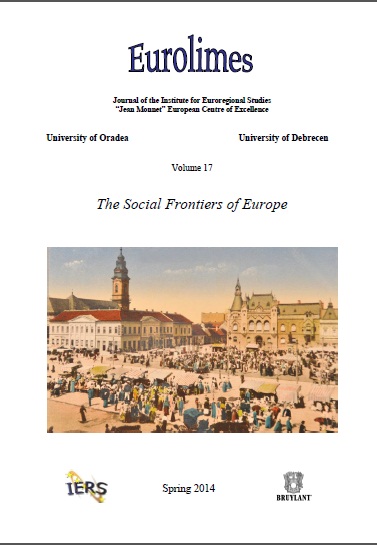Social Frontiers in Hungary in the Mirror of the Centre-periphery Dichotomy of Incomes
Social Frontiers in Hungary in the Mirror of the Centre-periphery Dichotomy of Incomes
Author(s): János Pénzes, Szabolcs Pásztor, Gábor PálócziSubject(s): Politics / Political Sciences
Published by: Editura Universitatii din Oradea
Keywords: frontiers; income; spatial autocorrelation; territorial inequalities
Summary/Abstract: The current analysis aimed to illustrate the centre-periphery dichotomy of Hungary on the level of settlements using the personal income approach for investigation. Income represents a special indicator correlating with lots of other social-economic variables. The income database is appropriate to illustrate the post-socialist transformation of the Hungarian economy and society with territorial consequences. The comparative overview of the regional level income per capita processes drew the attention to the differing development paths of regions forming two polarised groups. Income inequalities were calculated by the Hoover index and the weighted form of mean logarithmic variation. The rapidly growing inequalities started to stagnate after the mid 1990’s and slight convergence appeared by the time of the millennium. One more stage was reasonable to divide – in 2008 with the blast of the global financial and economic crisis. The development stages of income inequalities provided the basis for aggregating the results of the local spatial autocorrelation calculation. The mapping of these results drew the income frontiers and their alterations during the last two and half decades. The boundary of the groups of settlements with similar high or low values formed the income frontiers that can be regarded as a special social frontier. This frontier determines more socio-economic processes and the regional policy should consider these to treat the significant social problems with their territorial consequences.
Journal: Eurolimes
- Issue Year: 2014
- Issue No: 17
- Page Range: 11-23
- Page Count: 12
- Language: English
- Content File-PDF

